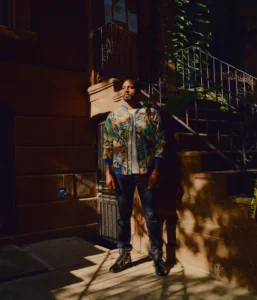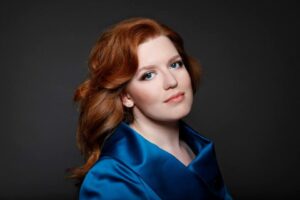A Joyful Night at the Schermerhorn
It was with great pleasure that I was able to attend the Nashville Symphony’s concert, Beethoven’s Ninth: Ode to Joy, on Friday February 7th. The orchestra was led by conductor , and the show featured Ellie Dehn, Jennifer Johnson Cano, Alek Shrader, and Davide Leigh as soprano, mezzo soprano, tenor, and bass respectively. The program started with Fate Now Conquers, a contemporary piece composed by Carlos Simon. This was followed by Ravel’s 3-piece song cycle Scheherazade, and the concert concluded with the much-anticipated Symphony No. 9 in D minor, Op. 125 by Beethoven.

As stated, the night started off with Fate Now Conquers. Carlos Simon composed this work as a response to Beethoven’s Symphony No. 7, so it was a nice thematic fit to a Beethoven concert. The piece itself begins with fast, frantic strings that ebb and flow throughout the rest of the song. Dissonance, shifting dynamics and instrumentation, and varied pacing all help conjure up the idea of fate the composer was intending. While the strings, and to a lesser extent the winds, tend to carry the composition, I found myself most entranced with the trumpet parts. Multiple muted trumpet sections provided a touch of modernity to a piece that otherwise blends in well with classical tradition. When the mutes were removed the trumpets also helped punctuate the more powerful moments of the piece.
Despite being a Beethoven concert, it was really Shéhérazade that stole the show. This was due in large part to the vocal talent of Jennifer Johnson Cano, but this does not mean interpretation by the orchestra should be ignored as that too was exquisite. In the past couple of weeks, the symphony has played a lot of Ravel, with Empress of the Pagodas finding a spot in their lunar new year show, and their concert celebrating Ravel’s 150th birthday. Perhaps at this point, they have just learned how to bring out the best of the French composer’s music. The song cycle was Ravel’s second attempt at portraying the exoticism of The Arabian Nights.

The cycle begins with “Asie,” the piece that most prominently invokes the contemporary western stereotypical “exotic eastern” sound. What the piece lacks in cultural authenticity is certainly made up for in its unique and intoxicating themes. The singer’s opening invocation of “Asie” instantly transports the listener to the mythical realm Ravel pictured. The song gives all of the orchestra chances to shine with glittering string passages, climactic brass sections, and interesting woodwind call and returns. Next in the cycle comes, “La Flûte Enchantée,” which, as one might expect, heavily features the flute. This piece is really just a dance between the singer and the flautist with support from the rest of the orchestra. As for the performance, what more can I say than the flute really was magical in this one. Finally, the cycle ends with “L’indifférent.” This is a wistful and melodious song that details a passing interaction between an androgenous youth and an admiring narrator. In contrast to the previous songs in the cycle, the singer carries more of the melody as opposed to the more chanting style of “Asie” and “La Flûte Enchantée.” Underneath the singer are some subtle yet beautiful string and woodwind passages. As a whole, the cycle is complex and interesting. It fit nicely in the program between “Fate Now Conquers” and Beethoven’s Ninth, really helping to add some contrast to the bold style of the other works.

After intermission came the main attraction, Beethoven’s Ninth. As this is one of, if not the most, recognized pieces of classical music in the world there is little to offer here in terms of exposition. I will say that this symphony was revolutionary at its time for the inclusion of vocal scoring. The climax of Ode to Joy, featuring the full chorus, remains just as impactful today. I’m happy to say that the Nashville Symphony did this work justice. The symphony was energetic and powerful. Again, I was especially impressed with the vocal soloists with Davide Leigh proving to be a real standout. All in all, it was the perfect culmination to the rest of the program. I would be remiss if I didn’t also acknowledge Nicholas Hersh’s commanding stage presence. It was a pleasure watching him seem to explode in stature along with the energy of this work.
The Nashville Symphony has truly delivered at the start of this new year, and I, for one, can’t wait to see what else they come to offer the rest of this season.



